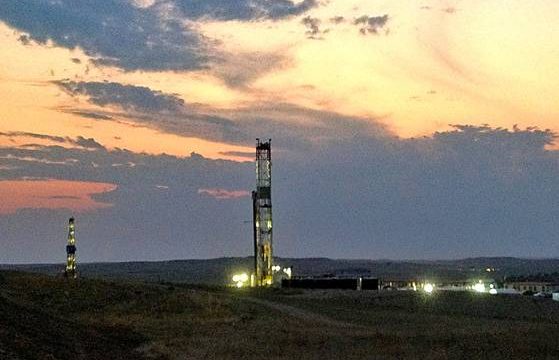Don't Slow Down The Bakken Oil Boom, Grow With It

I was struck by these comments from Franklin Center for Government and Public Integrity President Jason Stverak about concerns over North Dakota oil production overwhelming energy infrastructure. Many are blaming recent train derailments on the spike in oil-by-rail shipments, and are calling for oil production in the state to be slowed down.
Stverak makes the obvious point in response. Don’t slow down production, diversify infrastructure:
Bakken oil remains a relatively new source of fuel, and as the energy industry continues to explore methods of transporting the crude, setbacks are unfortunately inevitable.
“The government’s formal caution concerning the volatility of Bakken crude was appropriate, but it should hardly dampen North Dakota and Montana’s booming energy sector,” Stverak noted.
Instead, the onus now falls upon energy innovators to devise better and safer ways to transport oil from the Bakken shale to refineries and eventually to homes and businesses. Whether this entails safer railcars, pipelines, or some other system will be determined by the market – the energy industry has far too much at stake in the Bakken region to allow this week’s setback to derail a boom that has created so many jobs and so much wealth.
“The government has done its part by blowing the whistle, but it now must step aside and let the private sector do what it does best – innovate, adapt, and overcome,” Stverak noted. “The best solution is diversifying transportation. The market will help rail companies improve technology and increase safety, but we can’t let one method of shipment be the only way we transport energy.”
Instead of having a debate about slowing down energy growth, why not have a debate about what’s holding back the buildout of the infrastructure necessary to handle that growth?
In related news, Dickinson Press managing editor Dustin Monke penned an editorial pointing out that government spending in North Dakota has been growing about as fast as oil production, and that shutting down one may have dire consequences for the other:
Though there are many days when it seems like life in western North Dakota does indeed need to slow down, we forget why there are so many new people in our area. Most came from states where the economy had faltered, something that could very well have happened here if not for the oil industry.
Calls to “slow down” or “moderate” how oil is extracted from western North Dakota seem like a great idea until the consequences are brought up.
The city of Dickinson is going $100 million into debt to improve its infrastructure because of the oil industry’s impact. Watford City, the town affected most by the industry, needs an estimated $193 million to build up and accommodate its untold thousands of new citizens and the relentless traffic that inundates the once sleepy town.
Both cities will need help from the state’s oil and gas tax revenue trust fund to do so, too. The money that everyone seems to want — on both sides of the state — is there now and it will continue to accumulate unless oil companies become over-regulated like they have in other states.
He also points out that the oil boom is already beginning to plateau. “In actuality, the oil industry in North Dakota is already beginning to settle into a comfortable pace,” he writes. “Free enterprise, infrastructure and the real estate markets are all catching up in the Oil Patch. Why slow down just when things are beginning to balance out and life is beginning to stabilize?”
Good point.




